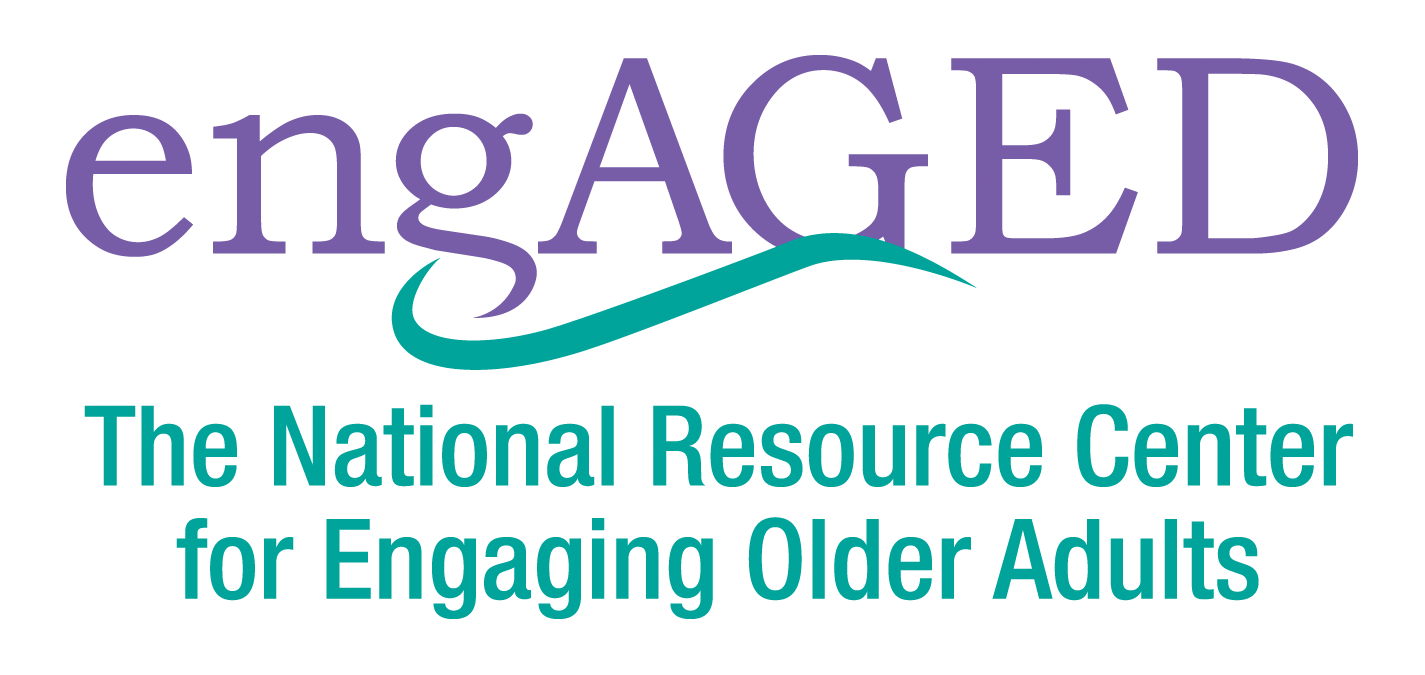Bridging The Digital Divide to Increase Social Engagement: Takeaways from the April engAGED Webinar
Taking steps to bridge the digital divide helps ensure older adults have access to affordable internet, device options and skills they can use to access additional social engagement opportunities. The April engAGED webinar highlighted ways the Aging Network can connect older adults to affordable broadband to help them take part in virtual social engagement opportunities.
Aging Connected Working to Raise Awareness on Access to Affordable Internet
To help the 22 million older adults lacking an internet connection, Older Adults Technology Services (OATS) from AARP and the Humana Foundation launched Aging Connected to help older adults connect to affordable internet and reduce social isolation. This national campaign brings together telecommunications companies, nonprofit service providers and public sector agencies with a focus on raising awareness and sharing knowledge about resources that assist older adults with accessing high speed internet at home, including the Affordable Connectivity Program (ACP).
Affordable Connectivity Program
ACP is a Federal Communications Commission (FCC) benefit program that helps ensure qualifying households can afford broadband. ACP builds off of the Emergency Broadband Benefit (EBB) program, which was created in response to the COVID-19 pandemic to provide a discount on monthly broadband bills for eligible households and ran through December 31, 2021. The ACP benefit provides a discount of up to $30 per month toward broadband service and associated equipment rentals for eligible households and up to $75 per month for households on tribal lands. Eligible households can also receive a one-time discount of up to $100 to purchase a laptop, desktop computer or tablet from participating providers if they contribute more than $10 and less than $50 toward the purchase price.
Broadband Sign-Up Events for Older Adults
Within days of the EBB announcement, the Eastern Oklahoma Development District Area Agency on Aging developed a proposal to hold events to assist older adults with signing up for the EBB and cover the cost of a tablet for each qualifying older adult through Consumable Supplies. The AAA partnered with local Lifeline providers to set up the events through an approved carrier, created a flyer for older adults that included terms of eligibility and required documentation needed for the sign-up events, and marketed the events to existing consumers, vendors and partners to reach even more consumers. The AAA held events at nutrition sites where the carrier helped older adults sign up by verifying eligibility and assisting with the online application process. The carrier also provided on-site technical assistance and step-by-step instructions on how to use the tablet provided to each older adult. At each event the AAA also presented on Older Americans Act Title III services, collected intake for Title III, distributed resources and made referrals as needed.
Lessons Learned Related to Sign-Up Events
Older adults loved the sign-up events and appreciated the opportunity to get connected and learn to use technology. The AAA shared lessons learned to guide other organizations as they develop similar sign-up events for the ACP.
Partner with Lifeline providers.
Build in ample time to promote the events. Use social media, PSAs and email lists to announce the events and include event details in all information and assistance, outreach and caregiver presentations.
Space the events out to give the carrier(s) time to restock.
Explore intergenerational interactions like working with high school or vocational tech students who can assist with technical assistance on using tablets and phones.
Tablet Program to Connect Older Adults to the Internet
OATS partnered with the New York City Housing Authority, New York City Department for the Aging, T-Mobile and others on the launch of a tablet program during the pandemic. Through the program, 10,000 free tablets with no-cost connectivity through T-Mobile were distributed to socially isolated, low-income older adults living in public housing in New York City. The program included instructional materials, outreach via mail and phone and a training program on how to use the tablets. OATS shared best practices from the program for other organizations to consider when developing similar offerings.
Develop simple, quick, age-appropriate instructions so older adults can get started using their tablets.
Reach out to participants immediately following tablet distribution.
Track data on use of tablets to prioritize follow up, calling those with lower levels of activity first.
Provide a formal training program and consider offering an open lab where individuals can drop in for assistance.
Articulate eligibility criteria from the start to ensure those most in need receive tablets.
Use as many channels of communication as possible such as postings on bulletin boards in housing facilities and articles in local community newspapers before distributing the tablets and offering training.
Additional Resources
Aging Network and other organizations can become an ACP outreach partner by contacting outreach@fcc.gov. The FCC also created a free outreach toolkit for organizations to use to reach consumers with information on ACP via public service announcements, electronic postings and printed materials.
The FCC and OATS also offer resources that organizations can share with consumers, including:
The FCC ACP Support Center: 877-384-2575 or ACPSupport@usac.org
The OATS National Technology Call Center Hotline: 888-713-3495
The Aging Connected National Call Center Hotline: 877-745-1930
To learn more about bridging the digital divide and additional resources to support this work, listen to the webinar recording and view the webinar slides.
